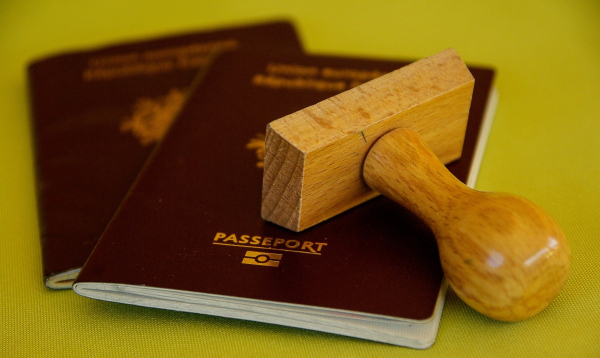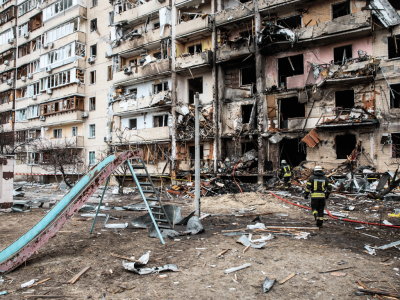
The President of Poland conferred nationality to 26-year-old Viktoriia, formerly stateless for a few years. Viktoriia arrived in Poland several years ago and lost her Ukrainian nationality during the process of conferring Polish nationality, which was not received on time. Because of defective law and accumulating formalities Viktoriia suddenly become a stateless person – without any documents, insurance, and possibility to continue her studies and to conduct normal life.
Viktoriia’s history
Viktoriia was born in 1991 in Luck, Ukraine as a Ukrainian citizen. She arrived in Poland with her mother in 1999 on the basis of a visa, and for the next 17 years continuously lived in Poland on the basis of a temporary stay permit. She graduated from Polish schools, passed Polish A-levels exam and started her studies at a Polish University.
Viktoriia considered herself a Pole and in 2010, filed a motion to the Polish President (via the Mazowiecki Voivod) for conferment of Polish nationality. In April 2012, Victoria was issued the so-called ‘promise’ from the President of Poland to receive Polish nationality on the condition she provide proof of losing her Ukrainian nationality within a 2 year time period. And at this moment her problems started.
Without an ID
Viktoriia and her mother started the procedures for resigning from Ukrainian nationality before Ukrainian authorities. This procedure turned out to be painstaking – the Ukrainian embassy in Warsaw demanded documents that they had to retrieve from Ukraine, before they even admitted the motion to resign from Ukrainian citizenship. They had to sell their property in Yalta. When they returned with proof of selling the property, the authorities demanded proof of deregistration with Crimean residence and tax authorities. The proof could only be issued by the authorities in Crimea. Viktoriia and her mother travelled to Crimea, but when they returned to the consulate it turned out other documents were needed. At the end of 2013, Viktoriia went to Ukraine to retrieved the remaining documents needed in the procedure. Her Ukrainian identity card was taken away from her.
In December 2013, the Ukrainian embassy finally accepted her motion to resign from Ukrainian nationality. She tried to find out the status of her motion several times, but no one could provide her with information (it was the time of political riots in Ukraine). Worried, Viktoriia asked the Chancellery of the President of Poland to grant her nationality without fulfilling this condition but she was refused.
Without a visa, without a passport
In 2015, Viktoriia was refused a temporary stay permit by the Polish authorities. She had to return to Ukraine to get a visa. Before going back, she went to the embassy to learn the status of her motion to resign from Ukrainian nationality. She then received the decision confirming that she had lost her Ukrainian nationality in September 2014. She had not been informed earlier about this decision. On the contrary – up until this moment she was informed that the decision was not issued. When she received this decision her passport was taken. As a result she could not travel to Ukraine to obtain the visa and to legalise her stay in Poland. Viktoriia asked the President to confer her nationality because of the difficult situation she found herself in. The Chancellery replied that would not be possible as her ‘promise’ to get Polish nationality is no longer valid. At this point Viktoriia asked for help from the HFHR.
Difficult situation of stateless persons
Viktoriia found herself in a truly Kafkaesque situation without any fault of her own. When she came to the HFHR, she was desperate. Because of accumulating formalities she became stateless, with an unregulated stay in Poland. She didn’t even truly understand her situation, because the Polish law is silent about people like her – they are treated like regular foreigners. She didn’t have any documents for identification or insurance, had to suspend her studies, and lost the ability to lead a normal life” – says dr. Dorota Pudzianowska, Head of Anti-Discrimination Programme at HFHR.
“I think both Ukrainian and Polish authorities are to blame for the situation. The unfortunate turn of events has made me very afraid. I was scared because I had no social security; I had to face up to the fact that I would have nothing but my private means in the event I had health problems or an accident. I was afraid whenever I saw a police car, policemen. I was scared I would be placed in a detention centre even though I had lived legally in Poland for over 18 years. I lived in constant stress. I had to endure the fact that all members of my family were subject to the same pressure. I was put at the margin of the society because I had no identity documents” – says Viktoriia.
„First of all, we had to obtain a foreigner’s identity card for Viktoriia. This step allowed us to begin the procedure for the right to temporary residence in Poland. Only then did the government officials agree to accept Viktoriia’s motion to the President to confer nationality. We jump over many hurdles before Viktoriia was finally taken out of the legal void of statelessness”—explains Marta Kuchno, a barrister who represented Viktoriia pro bono at the HFHR’s request.
Without her attorney and the Foundation’s help, Viktoriia would never have been able to obtain Polish citizenship. The situation for stateless persons in Poland should be comprehensively regulated as soon as possible. Poland should specifically ratify two United Nations conventions on the topic of stateless persons. We are one of four countries in the EU that have not yet ratified any of those conventions, although it is estimated that Poland might have around ten thousand stateless persons.” – adds dr. Dorota Pudzianowska.
The case was conducted under the Antidiscrimination Program Article 32 for the HFHR. At the HFHR’s request, lawyer Marta Kuchno represented Viktoriia pro bono.


